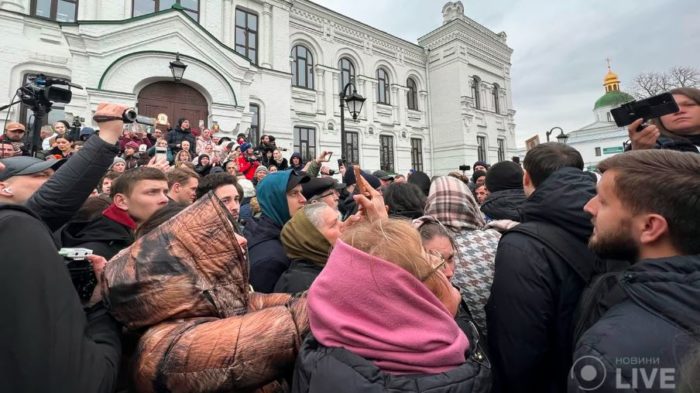“Let me tell you, Mr. President, and all of your entourage, that our tears will not fall to the ground. They will fall on your head... The Lord will not forgive you or your family for this act. You couldn't stop the Minister of Culture, who is possessed by rage, malice, hatred, and demonic frenzy… Woe to you, be afraid.”
Thus cursed the Ukrainian authorities Metropolitan Pavlo, abbot of the Kyiv-Pechersk Lavra, on 30 March, the day after his monks were to vacate the premises of the legendary medieval monastery in the center of the Ukrainian capital.
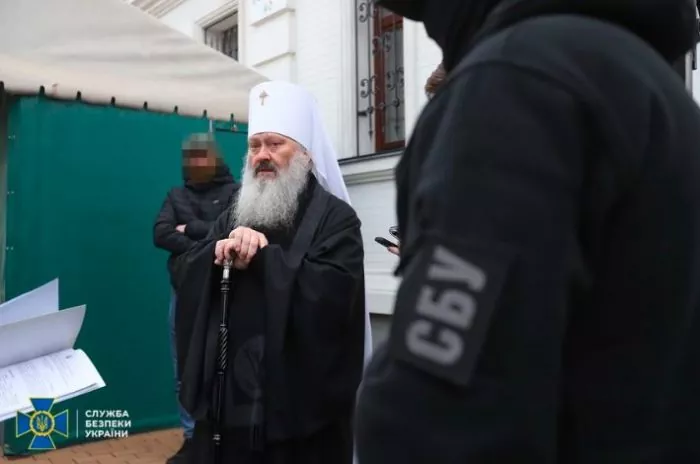
Hints that the Moscow-linked Ukrainian Orthodox Church would have to leave the Lavra emerged already in December 2022. The UOC MP was warned that the state is terminating its lease agreement for two major churches on the territory of the upper Lavra, organized as a state reserve and museum for the UNESCO site.
Then, the Moscow-aligned church left quietly, and Christmas services there were held by its competitor, the independent Orthodox Church of Ukraine (OCU). Having emerged from the hands of Ecumenical Patriarch Bartholomew in 2019, the OCU was seen as a snub to Moscow Patriarch Kirill, whose ecclesiastical claim to Ukraine not only bolstered his ambition to compete for primacy within world Orthodoxy but preserved one of Russia’s last outposts for ideological influence over the country.
Three months later, the Ukrainian state ordered the UOC MP to vacate the premises of the lower Lavra, a sprawling mini-city comprising alleys, churches, and caves containing holy relics of a plethora of Ukrainian saints. This occurred after an interdisciplinary commission found that the Church violated the terms of its free-of-cost lease agreement with the state. Unlike the upper Lavra, where the UOC MP only held services in two churches, the lower Lavra was not only home to over 200 monks but also the administrative center of the UOC MP, as well as the Kyiv Spiritual Academy and Seminary -- chief educational institutions for future UOC MP priests.
However, the Moscow-backed church does not intend to leave without a fight.
On 1 April, three days after it was supposed to leave, the alleys of the Lavra were full of both UOC MP worshippers chanting religious hymns and protesters demanding to evict the Moscow-backed church. The UOC MP refuses to allow a commission from the state reserve to inventory the buildings it is supposed to vacate. Meanwhile, Ukraine’s Security Service, which in the fall of 2022 conducted a series of raids on UOC MP monasteries, upped the ante by charging Lavra abbot Metropolitan Pavlo with inciting religious hatred and denying Russian aggression.
Here we analyze what is happening in Ukraine’s most sacred religious site and what will happen next.
What is happening in the Kyiv-Pechersk Lavra now? Who from the UOC MP still remains?
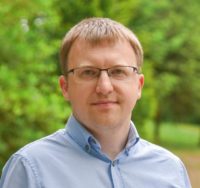
29 March 2023 was the last day of the UOC MP's use of the Kyiv-Pechersk Lavra. However, the UOC MP has appealed the state reserve's decision to terminate the lease and has refused to vacate the monastery and transfer the property to the state. Members of the state commission were not admitted to the churches of the monastery complex.
The first appeals in the case will be heard on 26 April, and it will be a long process, says religious scholar Andriy Smyrnov. In his opinion, the state made the right decision because there were numerous violations in the UOC MP's terms of use of the property of the state reserve and UNESCO site. However, the materials of the commission that arrived at this decision are classified, raising questions among civil society, journalists, and the faithful: it would be good to publish the results so that it would be known what exact violations were committed in the last years by Metropolitan Pavlo and, possibly, other organizations that used the territory of the Lavra.
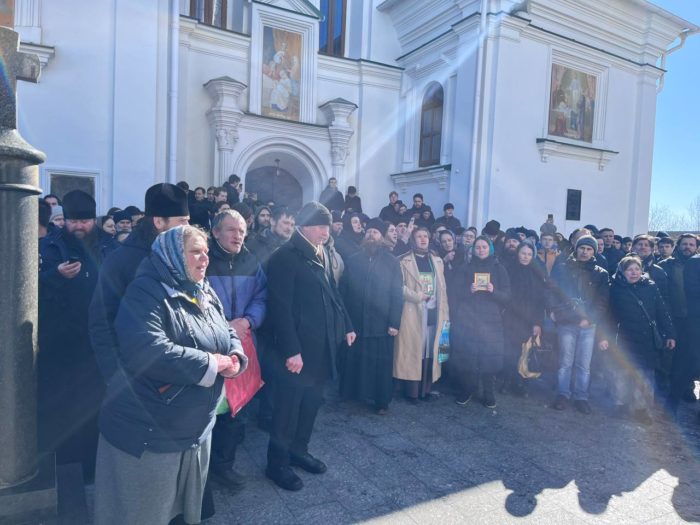
However, many inhabitants of the Lavra have already departed. First among them was UOC MP primate Metropolitan Onufriy
, who, in the words of theologian Cyril Hovorun, "was the first to leave -- unlike the good captains who leave their vessels last."
As well, many monks have left, and one, Avraamiy, has even decided to migrate to the OCU, promptly being appointed as the acting abbot, aka Archimandrite, of the Kyiv-Pechersk Lavra, with the hopes being that some from the monastic community of the UOC MP would join him and form the heart of the OCU's monastic cluster in the Lavra.
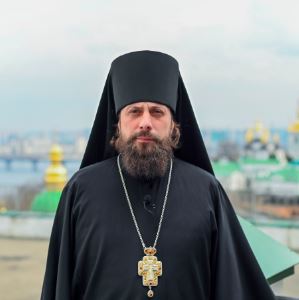
Apart from housing the administrative structure of the UOC MP and the Lavra monastic community, the Kyiv-Pechersk Lavra was also home to the Kyiv Spiritual Academy and Seminary. They appear to have vacated the premises, with a video going viral of the Academy giving away its vast library. Students of the academy still continue living there.
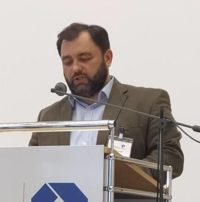
Some Academy teaching staff have left; among them is professor Serhiy Bortnyk. There is nowhere for the students to leave; studying at the Academy will be possible only if they all go home and continue studying online, or it will close.
"It's really not right to evict the Academy in only three weeks into nowhere," he says.
The UOC MP losing access to the Upper Lavra was not that traumatic; they knew beforehand that they would lose the right to hold services, simply packed up some church items and left. Monks can go to some other monasteries, and the UOC MP administration will also find some other corner, but an educational institution must stick together. Therefore, the Academy and Seminary face the largest problems now.
Why did the state take this step of evicting the UOC MP from the Kyiv-Pechersk Lavra?
Though the official pretext for the eviction of the UOC MP was alleged violations of terms of use of Lavra property, the real reason lies in the Moscow-affiliated church's collaboration with the Russians on occupied territories. The Russian Orthodox Church espouses a heresy called the "Russian world," which maintains that "holy Russia" is at war with the "ungodly West" and allows Russian Patriarch Kirill to bless the Russian troops who believe that by invading Ukraine, they are actually fighting the West.
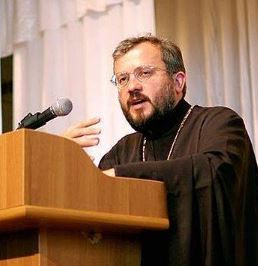
This ideology is the mainstream in the Russian Orthodox Church, and although the overwhelming majority of UOC MP believers find it detestable, "Russian world" pockets certainly exist in UOC MP monasteries and elsewhere, says theologian Cyril Hovorun.
One "Russian world" supporter is, apparently, the Kyiv-Pechersk Lavra abbot Metropolitan Pavlo, who, according to intercepts of Ukraine's Security Service, cheered on the Russian invasion of Kherson and promoted prayers for Moscow Patriarch Kirill.
Some UOC MP hierarchs also sanctified Russia's annexation of occupied Ukrainian regions; others helped the invading Russians by correcting artillery fire. It is UOC MP's failure to deal with these collaborators that triggered the Ukrainian state's change of heart and put an end to Ukraine's policy of tolerance to the Moscow-aligned church, agree Andriy Smyrnov and Cyril Hovorun.
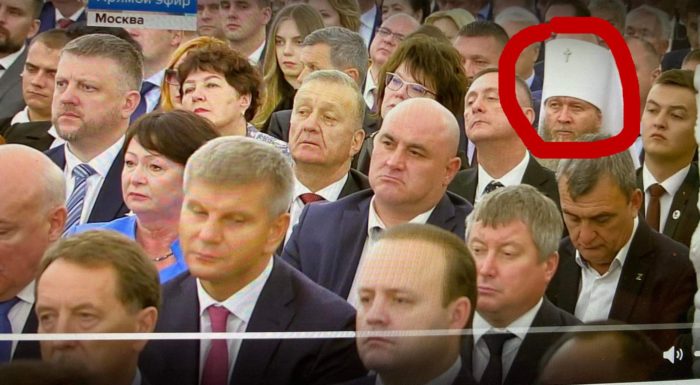
"The UOC MP had taken a confrontational position, and ignored all requests of the state, which requested to fire Metropolitan Pavlo from his position of the Lavra abbot, condemn collaborationism, but the church metropolitans refused," Andriy Smyrnov shares.
Abbot Pavlo appears to be a figure especially unfit for his position.
"He is the most scandalous, odious, and toxic hierarch of the UOC MP, creating its collective image due to various scandals related to violations of cultural heritage laws and interfering with the work of journalists. His statements have become idiomatic, and he is known as a very wealthy hierarch who owns a lot of real estate and various businesses, turning the Lavra into a business empire. Therefore, he discredits not only the church and the Lavra but also the state," Smyrnov explains.
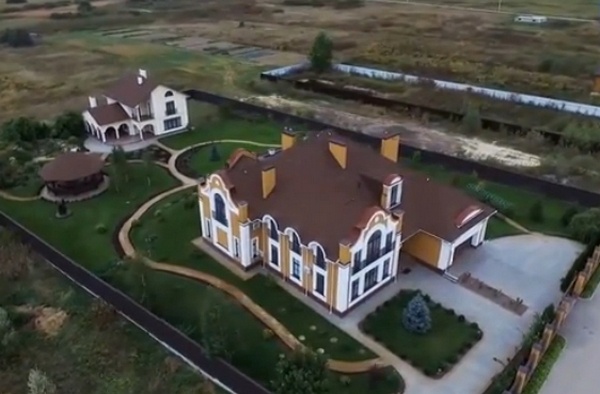
Collaboration in occupied territories and Russofilia in the UOC MP: a slippery question
Why did the UOC MP fail to condemn the collaborators? Because its primate Metropolitan Onufriy and most members of the Synod do not consider collaborationism malicious, says Andriy Smyrnov. They believe that all authority comes from God, and one must adapt to the authority that exists in one or another diocese. This manifested in 2014 when the UOC MP failed to condemn Russia's occupation of Crimea or the Russian Orthodox Church's annexation of UOC MP structures on the occupied peninsula.
This position is not unique; the church was known for cooperating with occupying powers during World War II.
"For the church, it is natural to recognize the authority that exists in one or another territory. If Bolshevik authorities came, they recognized the Bolshevik authorities. If Nazi authorities came, they recognized the Nazi authorities. When the Russian authorities came, they recognized the Russian authorities. However, this is not acceptable to the Ukrainian state. There is a conflict because the state does not understand why the UOC-MP took such a position," Smyrnov explains.
"It is probably a conflict of national and Christian values. From the Christian perspective, the church authorities must be with their faithful and continue to serve them even under occupation. But this conflicts with their Ukrainian citizenship," he adds.
The OCU serves as a counter-example: it did not recognize the occupation of Crimea, no OCU church is re-registered under Russian legislation, and OCU Metropolitan Klyment of Crimea had to leave the occupied peninsula and now serves as a chaplain in the Ukrainian Army.
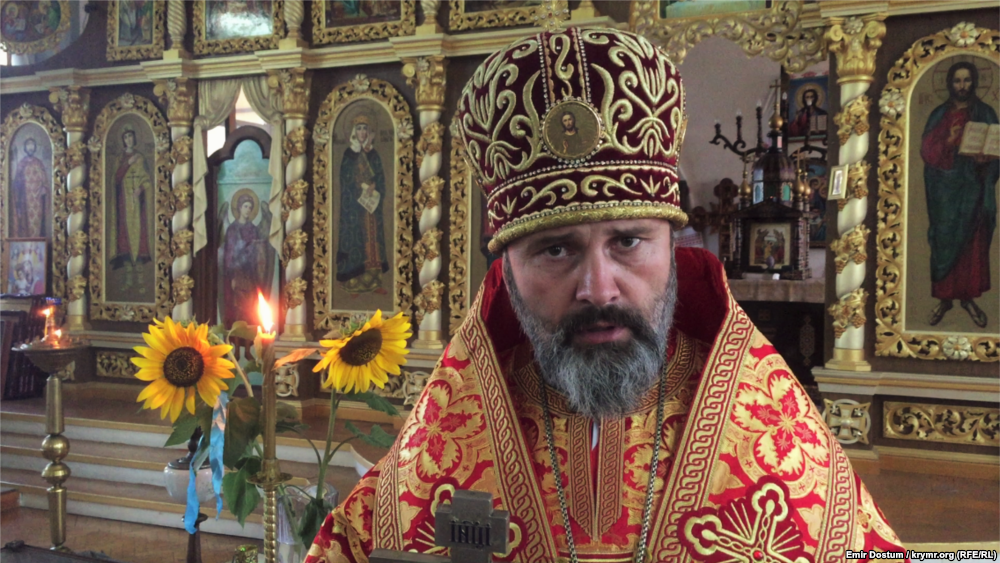
What is the solution to the collaboration dilemma? To not be collaborators, the UOC MP headed by Metropolitan Onufriy should have condemned Russia's war against Ukraine, its occupation, and the priests who openly collaborate with the occupiers.
"Metropolitan Onufriy is not in Russia but in Ukraine, and should be with his people and support the Ukrainian state. How the UOC MP hierarchs in occupied territories will behave is another question," Smyrnov stresses.
The church's chameleonic adaptation to occupying powers is a consequence of Eastern Christianity's collaboration with the state. This infamous symphony goes back to 4 AD in the Byzantine Era, according to Cyril Hovorun. This, in addition to "a sincere sympathy with the Russian cause, which is also a feature for many, both on the occupied and unoccupied free territories of Ukraine," is the driving force for church collaborators in Russian-occupied Ukraine, he says.
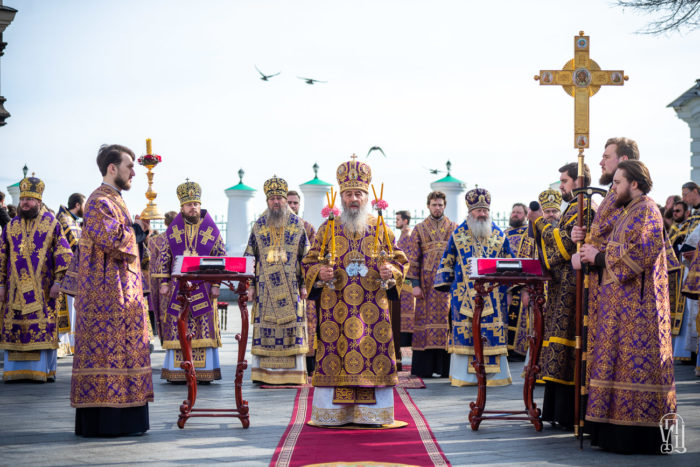
Serhiy Bortnyk, on the other hand, maintains that the issue of collaboration should be viewed broadly.
"We are all born from the USSR; before that, there was the Russian empire. Many people who are now Ukrainian citizens are connected with people in Russia. And not all believe that Ukraine should be confined to its present borders, many think it should continue eastward. I think this concerns large regions of south-eastern Ukraine really; and that is where the UOC MP is most active," he explains.
Pro-Russian views there do exist, Bortnyk admits, but at the same time, the UOC MP comprises 12,000 parishes and mpeople of vastly different views. Attempts to ban the whole structure of the UOC MP at the same time over the actions of its part are misguided. Individual responsibility, such as sanctions and stripping of citizenship of certain hierarchs, is a better solution.
"The state is basically forcing the UOC MP to go underground. But this will not serve the state: it will radicalize those UOC MP faithful who can fight. Many UOC MP members are at the front; these are specific people, family members of our students. Who knows what they can decide, having weapons, if the state decides to ban the UOC MP," Bortnyk explains.
Prof. Cyril Hovorun concurs. The notion of presumption of guilt for the UOC MP and collective responsibility of its members not only creates unnecessary strife in Ukrainian society but takes a toll on Ukraine's international standing. And if the UOC MP is abolished, it would not solve the problem of collaborators; they would still remain. What would help is trying each collaborator based on evidence, according to the law, and ensuring that justice is inevitable.
Why does the UOC MP simply not cut ties with Moscow?
In May 2022, hopes were high that the UOC MP would break ties with Moscow. It convened a conference condemning the war, proclaiming its independence, and instructing UOC MP churches to omit naming Moscow Patriarch Kirill during services.
However, soon a part of UOC MP hardliners resisted Metropolitan Onufriy's instructions and continued praying for Kirill during church services. As well, the UOC MP never made public the statute that it claimed reflected the alterations in its status, leaving an air of uncertainty as to what actually changed.
Suspicions grew that, in fact, nothing did: the Moscow Patriarchate did not announce a war on the UOC MP, which should have happened if the UOC MP did indeed proclaim its independence from its mother church. As well, the rest of the world's orthodox churches continued communicating with the UOC MP as if it still were a part of the Russian Orthodox Church.
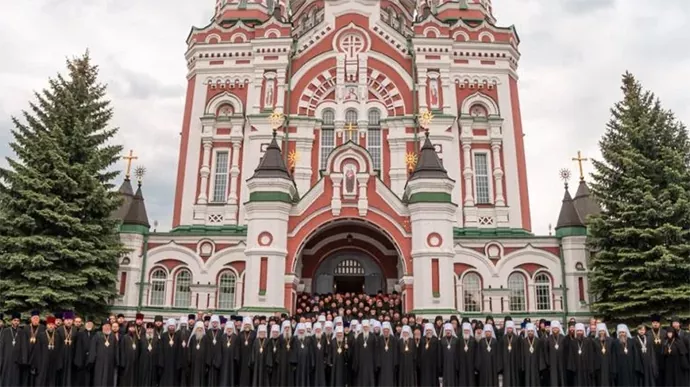
The suspicions were confirmed in the conclusions of an expert committee that announced that the UOC MP was still linked to Russia despite claims to the contrary. These conclusions paved the way for the eviction process. But what makes it so difficult for the UOC MP to simply cut ties with Moscow?
First of all, the UOC MP fears being an unrecognized church, following the path of its nemesis, the Ukrainian Orthodox Church of the Kyiv Patriarchate, which actually did break off from Moscow and which the UOC MP laughed down as schismatic until it gained an "official status" in 2019 with the formation of the OCU from the hands of Patriarch Bartholomew. The Moscow patriarchy would not recognize the declaration of independence. UOC MP hierarchs, including Metropolitan Onufriy, will be punished, just like the UOC KP hierarchs that the UOC MP scoffed at for 30 years.
"The decisions of May 2022 were political, stating that we disagree with Russia's aggression but preserve canonic ties with the Moscow Patriarchate; so yes, the UOC MP is still a part of the Moscow Patriarchy. Even if the UOC MP hierarchy wanted to, it could not break this connection. If it did, it would be the start of a schism. The UOC MP fears this the most: to be schismatic in the eyes of world orthodoxy. There is no simple solution. The state is demanding something that the church cannot do: this question [of proclaiming autocephaly aka independence] was prepared over decades but found no solution on the all-Orthodox level due to a lack of consensus among churches," explains Serhiy Bortnyk.
But apart from the fears of being schismatic, roughly half of UOC MP hierarchs are waiting for Russia's war to end, and to return to the Russian Orthodox Church, says religious scholar Andriy Smyrnov. Over the years, they received funding from Russian or pro-Russian organizations, and they do genuinely support the ideas of the "Russian world" and dream about the resurrection of "Holy Russia" as a united cultural-religious space. Educated in Moscow spiritual schools, they cling to the Russian language, resist any movement towards Ukrainian, prize their cultural and religious ties to Russia, and have many friends and like-minded people in Russia.
"They are only waiting for the war to end to return to the status quo," Smyrnov explains.
They want everything to remain as it was, and the church struggle we observe is, namely, about this: a struggle to preserve the Moscow Patriarchate in Ukraine, which is still not banned in any way. For them, it matters not if Ukraine will be part of Russia or an independent state; what matters is that it will be in Russia's orbit of influence.
There is also a minority fundamentalist part of the UOC MP faithful who are brought up in the spirit of fanaticism and belief in obeying "holy teachers" of questionable holiness. This minority puts up a fight against Ukraine's Euro-Atlantic course and European values, and also dreams about the resurrection of the Russian Empire.
However, the regular priests and faithful overwhelmingly reject the ideas of the "Russian world." They actively volunteer to help the army and would like to separate themselves from the UOC MP's Moscow heritage but do not find support on higher levels. For instance, a grassroots initiative of UOC MP priests addressing the Synod about their church's canonical status was left unanswered.
"They did not receive an answer because the UOC MP leadership is afraid to admit that they still remain a part of the Moscow Patriarchate because neither society nor the Ukrainian authorities will accept this," Smyrnov says.
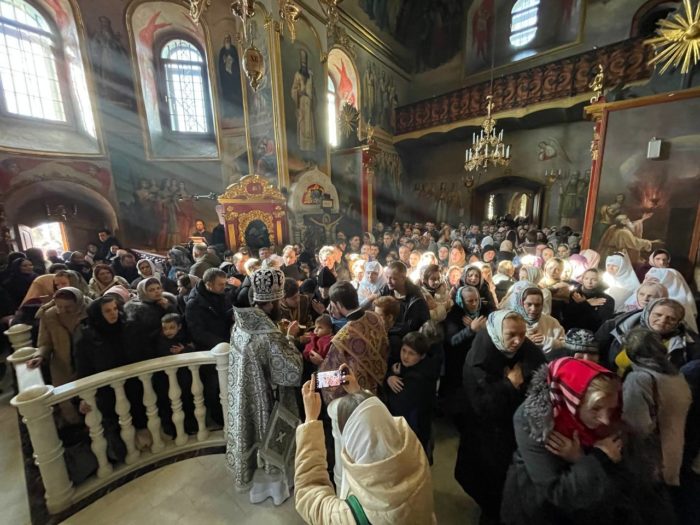
The Orthodox Church of Ukraine emerged in 2019 as a solution to the schism in Ukrainian orthodoxy; however, most of the UOC MP boycotted the unification council and, following the Moscow Patriarch, broke off communication with Ecumenical Patriarch Bartholomew. How likely is it that the UOC MP and OCU will grow closer now?
The reasons for the animosity of the two churches reach back 30 years and concern the way that independence (authocephaly) is pronounced. Neither the Russian Orthodox Church nor the UOC MP recognized Ecumenical Patriarch Bartholomew's Tomos of autocephaly which created the independent OCU in 2019. Therefore, neither UOC MP Metropolitan Onufriy nor other hierarchs are ready for dialogue with the OCU, believes Andriy Smyrnov.
However, the faithful and lower clergy wish for such a dialogue and conduct informal meetings to search for a way forward. The UOC MP hierarchs have thus far ignored it. But the Ukrainian state "softly encourages" the UOC MP towards dialogue and unification with the OCU, with the idea being that a unified Orthodox Church will decrease societal tension and polarization, Smyrnov says.
Cyril Hovorun sees no signs of rapprochement between the two churches: they act in a mode of competition, even opportunism, and not collaboration and dialogue. While the UOC MP had capitalized on a cozy relationship with the state in previous years, the OCU seems to be following the same path in the new geopolitical realities, adding strife into Ukrainian society. Steps such as the Lavra eviction do not help.
Serhiy Bortnyk concurs: even if all UOC MP priests decided to join the OCU tomorrow, the latter would not be too happy. He believes that the unification of churches that were 30 years at odds with each other is not a task for the state, especially at a time of war. It is better to let them coexist while both sides get to know each other for real, and not be guided by stereotypes.
Fears of the UOC MP's pro-Russianness are overblown, he says:
"Many faithful of the UOC MP understand that a Ukrainian identity is more important than a connection with Moscow; their connection to Moscow is superficial. Over long periods of time, Moscow's recommendations were ignored, and the connection with it was often simply formal, appearing more pro-Russian from Russian sources than it actually was. Many UOC MP believers straightforwardly reject Patriarch Kirill's position and activity. But single believers cannot change the global situation for their church, and so they remain where they are but consider themselves part of the unified, global Church with a capital 'C.' This is the case for me; it's hard to accuse me of a pro-Russian position. I am an open person, have a Ukrainian-English website and do not conceal my views and beliefs in various aspects of church life," Bortnyk summed up.
Related:
- Moscow Patriarchate’s war in the Kyiv Pechersk Lavra: church turmoil in Ukraine, explained
- Historical churches of the Kyiv-Pechersk Lavra returned to Ukrainian state from Russia-affiliated church
- Tomos ante portas: a short guide to Ukrainian church independence
- SBU charges Moscow-linked Kyiv monastery abbot with inciting religious hatred and denying Russian aggression
- Russian World: the heresy driving Putin’s war

